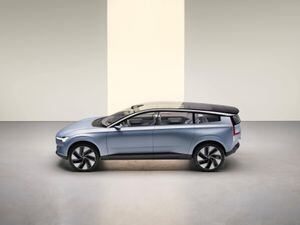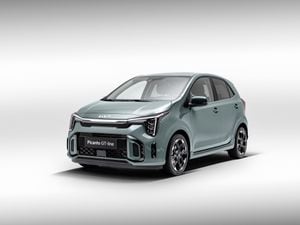Volvo announces £808m investment in next-generation electric vehicle production
Swedish firm plans to bring its Torslanda plant up to speed.

Volvo has announced a huge investment in its Torslanda plant to make it ready for the production of next-generation electric vehicles.
The factory, in the firm’s home country Sweden, will receive SEK 10 billion (£808 million) of enhancements to focus on fully electric vehicles.
As part of the upgrades, the factory will install new and more sustainable technologies and manufacturing processes, including the introduction of mega casting of aluminium body parts.

This process simplifies the construction of a vehicle’s body, reducing the number of parts that need to be joined together.
A new battery assembly plant will also be built, while the paint and final assembly shops will be fully refurbished.
These investments follow a recent announcement from Volvo and leading battery cell company Northvolt. The pair are investing SEK 30 billion (£2.4bn) in the development and manufacturing of next-generation battery technology for Volvo’s EVs.
Håkan Samuelsson, chief executive of Volvo Cars, said: “With these investments, we take an important step towards our all-electric future and prepare for even more advanced and better electric Volvos.
“Torslanda is our largest plant and will play a crucial role in our ongoing transformation as we move towards becoming a pure electric car maker by 2030.”
Volvo says the mega casting process ‘is the most significant and exciting change’ to come from this investment, because it improves sustainability, cost and car performance, while using this process to create the floor from a single aluminium part reduces weight.
This, in turn, reduces the amount of materials required and improves vehicle efficiency.
Torslanda has an annual production capacity of 300,000 cars and is one of Volvo’s longest-serving manufacturing facilities, having been opened in 1964. It currently employs around 6,500 people.





